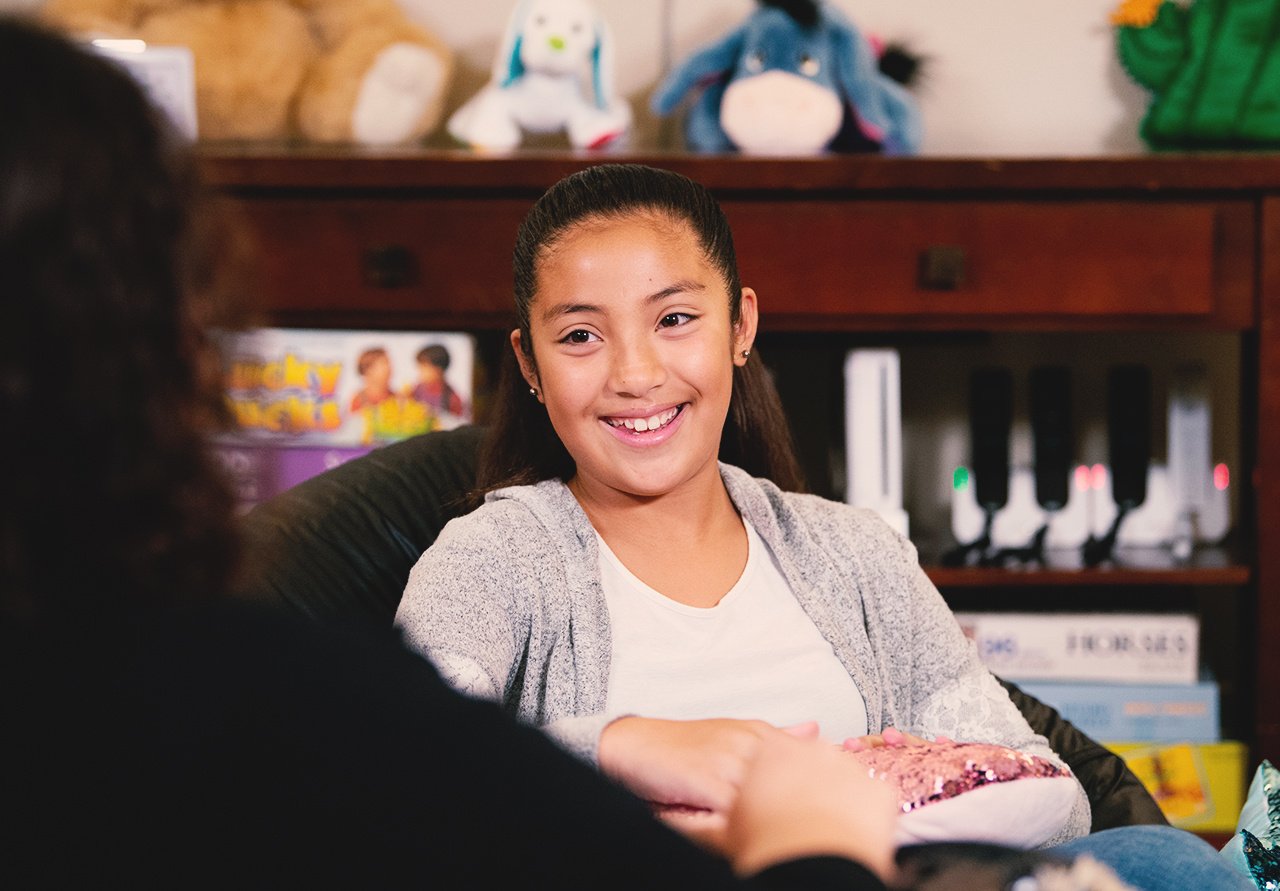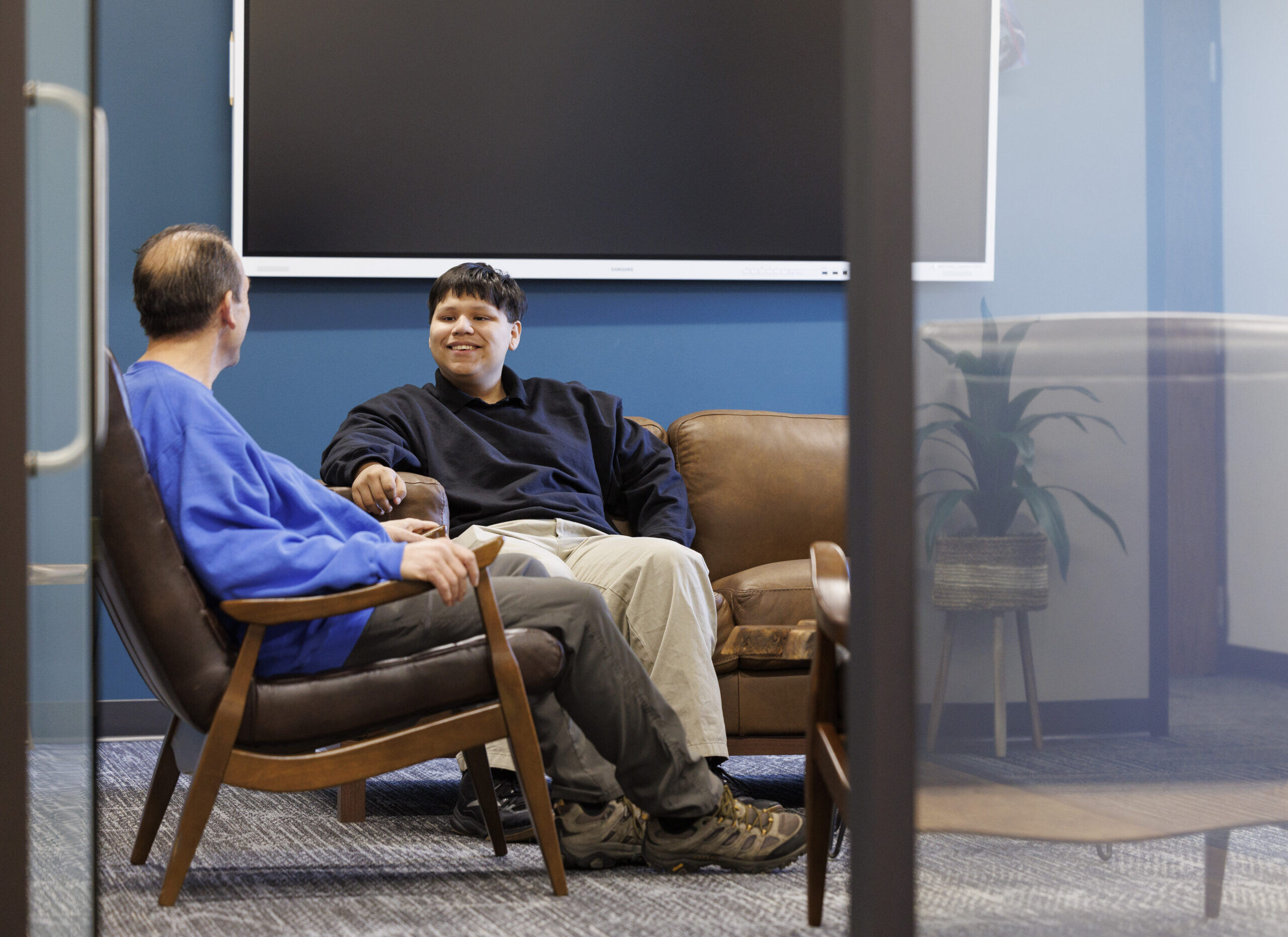
How often do you find your teenager staying up past their bedtime doing homework, playing video games, or browsing social media, only to have to pull them out of bed the next morning? Then on Saturday they sleep for what feels like the entire day. This may feel like the norm, but how big of a deal is it really?
Teen sleep deprivation, a health threat
Teens need about 9 hours of sleep each night to develop and maintain full cognitive and physical abilities. According to the Center for Disease Control (CDC), 91% of all teens fail to get that amount of sleep on a consistent basis. Teens fall behind in school, are more prone to make poor decisions, and see their health decline due to lack of sleep. Unfortunately, 71% of parents are unaware their teens are sleep-deprived.
Teen sleep deprivation is prevalent
In a 2010 study, 50% of teens reported being excessively sleepy, meaning they were likely to fall asleep during everyday activities like reading and watching TV.
Teens’ lives are busier than ever between school, homework, activities, and friends. Add the prevalence of digital and social media in their lives, and suddenly their day extends well into the night. When activities and smartphone use run into the wee hours of the night, teen sleep deprivation becomes an issue.
- 66% of teens get less than 7 hours of sleep per night Click to Tweet!
- 20% get less than 5 hours of sleep Click to Tweet!
- 10% of teen teens say they never or rarely get a good night’s sleep
William Dement, founder of the Stanford Sleep Disorders Clinic, said teen sleep deprivation has long-lasting ramifications,
“I think high school is the real danger spot in terms of teen sleep deprivation. It’s a huge problem. What it means is that nobody performs at the level they could perform.”
Why are teens not sleeping enough?
Teens’ environments and biology work against each other, making sleep a challenge.
1. Stimulation from Electronic Devices
Using smartphones and other electronic devices near bedtime contributes to teen sleep deprivation.
- 97% of teens have at least one electronic device in their room
- Blue light emitted from your teen’s devices delays the release of melatonin, a sleep-inducing hormone, making it hard to fall asleep
- Blue light can even penetrate closed eyelids
Teens unknowingly disrupt their sleep patterns by staring at their smartphones immediately before they attempt sleeping.
2. Busy Lifestyle
Teens often work, play sports, volunteer, and have homework all in the same day. When teens procrastinate or schedule too many activities, sleep is often the first thing to go.
- 79% of teens have activities after school and weekends
- 34% of parents believe scheduled evening activities interfere with their teen’s sleep
3. Circadian Rhythm
Humans are biologically programmed to adapt to lightness and darkness of their environment. This is called the circadian rhythm, and it’s why we sleep when it’s dark outside. When children hit their teenage years, their circadian rhythm begins to shift. And when you include a busy lifestyle and electronic use at night, their bodies do not make melatonin until well after the sun goes down, resulting in less sleep time.
Dr. Mary Carskadon explained the immense power of our biological clocks:
“Every day we teach our internal circadian timing system what time it is — is it day or night? — and if that message is substantially different every day, then the clock isn’t able to set things appropriately in motion,” she said. “In the last few years, we have learned there is a master clock in the brain, but there are other clocks in other organs, like liver or kidneys or lungs, so the master clock is the coxswain…So if the coxswain is changing the pace, all the crew become disorganized and don’t function well.”
Drastically different bedtimes and wake times on school nights versus the weekend also disrupt teen sleep patterns.
8 Signs of sleep deprivation in teens
Parents can look for signs of sleep deprivation in their teen. Inquire about their sleep habits if your teen:
- Has difficulty concentrating
- Displays moodiness and aggression
- Uses more “sick days” at school and/or work
- Exhibits laziness/apathy
- Falls asleep in class or while doing homework
- Sleeps two hours later or more on weekends than on school nights
- Naps for more than 45 minutes routinely
- Relies on a caffeinated drink to wake up or drinks two or more caffeinated drinks a day
Physical health problems from teen sleep deprivation
When teens are deprived of sleep, their body releases higher levels of the hormone ghrelin, telling them they need food. The body also releases lower levels of the hormone leptin, which would normally say they do not need food.
- Each hour of lost sleep in teens increases the odds of being obese by 80% Click to Tweet!
- Teens that sleep under 8 hours per night consume 2.2% more calories from fat
Sleep deprived teens tend to make poor dietary choices. They may eat at odd times and grab whatever is convenient, which is often high in fat, sugar, and carbs.
Mental health problems
Sleep loss is tied to depression and suicidal thoughts among teens. Sleep deprivation creates anxiety and make teens moody, aggressive, and more emotional.
- Teens that go to bed after midnight are 24% more likely to suffer from depression than those who fell asleep by 10 p.m.
- Teens that sleep less than 8 hours per night are 3x more likely to consider attempting suicide Click to Tweet!
Problems in school
Teens lacking sleep are more likely to be outpaced academically by those who get enough sleep. In a study from Tel Aviv University researchers found that a 6th grader with one less hour of sleep than normal each night, performed the same as a well-rested 4th grader.
At the high school level:
- Teens with A grades slept an hour longer than those with D and F grades.
- Teens with B grades or better got 17-33 more minutes of sleep on school nights and slept 10-50 minutes earlier than those with C grades or below.
Teens with lower grades had less consistent bed times as well. They went to bed 2.3 hours later on the weekends than on school nights, while teens with A or B grades went to bed only 1.8 hours later on the weekends.
Parents Can Help Fight Teen Sleep Deprivation!
Parents are unaware of teen sleep habits
A teen may go to bed early enough to get 9 hours of sleep, yet wake up periodically to check their phone or experience interrupted sleep.
- 46% of parents estimate their teen gets 8 hours of sleep each night
- However, 87% of high school teens sleep less than 8 hours per night
Teens need more sleep than adults. Their sleep needs are not much different than those of a 9-12 year old.
Set Bedtime Guidelines
Parent enforced bedtimes are incredibly effective at influencing teens sleep habits. Set bedtimes around 10 p.m. on school nights and only 2 hours later on the weekends. Setting established times effectively maintain your teen’s circadian rhythm.
According to the Sleep Foundation, children of all ages got more sleep when parents set their bedtimes and enforced sleep rules. On average teens got:
- 66 more minutes of sleep with even a single enforced sleep rule
- 48 more minutes with restrictions on nighttime smartphone use
- 36 more minutes with restrictions on late night TV watching
- 42 more minutes with restrictions on late night caffeine consumption
Create a Peaceful Environment
- Eliminate electronics use at night. Put electronics outside of the room. Consider 9-9:30pm as the last opportunity to access electronics.
- Keep room temperature cool, 60-67 degrees
- Create soothing white noise. Get a white noise machine or use a fan.
- Let in natural light in the morning. Sunlight in the morning will cue the body to warm up naturally and reset the circadian rhythm.
Set Limits on Diet and Exercise
- Limit teen’s caffeine intake to the bare minimum after 5 p.m.
- Suggest teens exercise earlier in the day. Avoid exercising in the 2 hours before bedtime.
With an array of short- and long-term health threats, teen sleep deprivation is a serious concern. The vast majority of teens fail to reach the recommended 9 hours of sleep, failing to provide their bodies time to re-energize. But all is not lost. If parents raise awareness of the issue and help their teens change unhealthy habits that keep them sleep-deprived.









